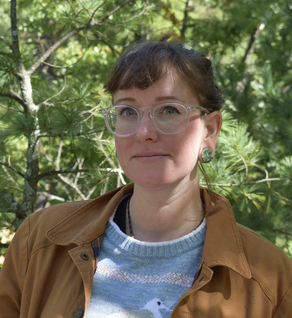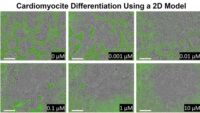Model highlights widespread PFAS exposure across the USA
Webinar: Researchers describe 'presumptive contamination' model for known sources of PFAS.
.jpg?1669173789)
Research and regulatory attention to per- and polyfluoroalkyl substances (PFAS) has grown dramatically in recent years, yet data about PFAS-contaminated sites are incomplete. Researchers recently proposed a “presumptive contamination” model of identifying likely sources of PFAS exposure in the U.S.
Dr. Alissa Cordner and Dr. Kimberly Garrett, two of the co-authors of Presumptive Contamination: A New Approach to PFAS Contamination Based on Likely Sources, described the model used to identify and map contamination sites based on proximity to certain types of identified facilities. The analysis builds on state-based studies that use testing to identify suspected contamination sources, self-reported releases from industrial users, and studies that linked measured specific contamination with specific types of sites.
Using this model, the researchers mapped 57,412 sites of presumptive PFAS contamination across the country. However, they argue that this is certainly an underestimation of the true scale of presumptive PFAS contamination. This approach allows governments, industries, and communities to rapidly prioritize sites for testing, site investigation, and possible regulatory action based onpotential exposure sources, according to study authors:
“To protect public health, the existence of PFAS in these locations should be presumed until high-quality testing data is available. The goal of this approach is … to develop a conservative and actionable model based on the best available data regarding sources of PFAS contamination.”
Sharyle Patton of Commonweal's Biomonitoring Resource Center, who also co-authored the study, moderated the session.
Featured Speakers
 Alissa Cordner, PhD is Associate Professor and Paul Garrett Fellow at Whitman College. Her research focuses on environmental sociology, the sociology of risk and disasters, environmental health and justice, and public engagement in science and policy making. She is the co-director of the PFAS Project Lab, an interdisciplinary research group that has been working on PFAS issues since 2014. Dr. Cordner’s website: www.alissacordner.com
Alissa Cordner, PhD is Associate Professor and Paul Garrett Fellow at Whitman College. Her research focuses on environmental sociology, the sociology of risk and disasters, environmental health and justice, and public engagement in science and policy making. She is the co-director of the PFAS Project Lab, an interdisciplinary research group that has been working on PFAS issues since 2014. Dr. Cordner’s website: www.alissacordner.com
 Kimberly Garrett, PhD is an environmental health researcher working at the intersection of environmental toxicology, public health, and environmental justice. She is a postdoctoral research associate at Northeastern University working in the interdisciplinary PFAS Project lab. Her current work involves modeling presumptive PFAS contamination sites and studying the interactions of environments, communities, and governments on PFAS contamination. She completed her PhD in environmental and occupational health at the University of Pittsburgh where she studied the chemical toxicology of mitochondrial poisons.
Kimberly Garrett, PhD is an environmental health researcher working at the intersection of environmental toxicology, public health, and environmental justice. She is a postdoctoral research associate at Northeastern University working in the interdisciplinary PFAS Project lab. Her current work involves modeling presumptive PFAS contamination sites and studying the interactions of environments, communities, and governments on PFAS contamination. She completed her PhD in environmental and occupational health at the University of Pittsburgh where she studied the chemical toxicology of mitochondrial poisons.
The PFAS webinar series is sponsored by the EDC Strategies Partnership, which is co-chaired by Sharyle Patton (Commonweal Biomonitoring Resource Center), Jerry Heindel and Sarah Howard (Environmental Health Sciences' Healthy Environment and Endocrine Disruptor Strategies HEEDS), Genon Jensen (Health and Environment Alliance, HEAL), and Kristin Schafer (CHE, Collaborative on Health and the Environment). To see a full list of past calls and webinars related to EDCs and listen to or view recordings, please visit our partnership page. For updates and more information on upcoming webinars, sign up for our HEEDS, HEAL, and CHE newsletters!



.jpg?height=200&t=1663877946&width=200)